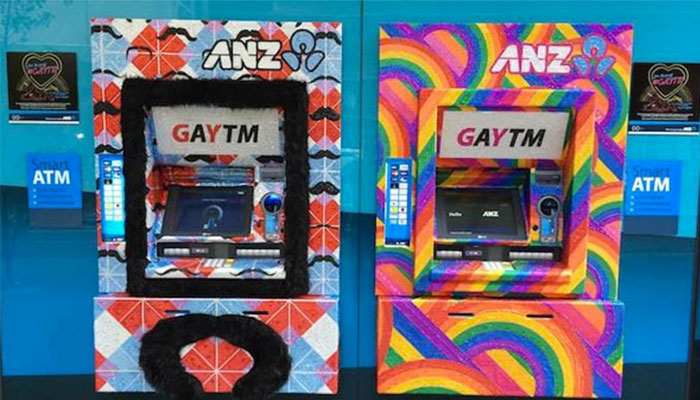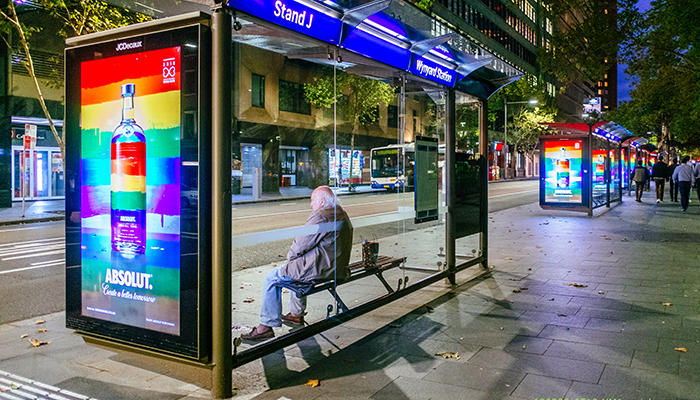When Australians were asked to participate in the Australian Marriage Law Postal Survey to gauge support for legalising same-sex marriage in 2017, some companies stepped up in a social marketing campaign.

Led by Airbnb Australia (whose motto is ‘belong anywhere’), the ‘Until We All Belong’ campaign encouraged people to buy a broken ring, symbolising the existing gap in rights for the LGBTQI (lesbian, gay, bisexual, transgender, queer, intersex) community in Australia.
Launched with support from some of Australia’s biggest brands including Qantas, Google, ANZ and eBay, and in collaboration with The Equality Campaign, Until We All Belong marked the most public corporate declaration for marriage equality in Australia to date. The YouTube videos attracted over half a million views and the rings were sold out.
Although this campaign was controversial and attracted criticism, it also gained a lot of public support. Eventually, 61.6 per cent of Australians supported the legalisation change and the Marriage Amendment (Definition and Religious Freedoms) Act 2017, passed the Australian Parliament on 7 December 2017, allowing same-sex marriage.
Australian business’ support for LBGTQI rights has evolved significantly over the past few years and has now gone beyond so-called “rainbow washing” to become an integral part of global corporate social responsibility.

While some business leaders are still concerned that engaging on LBGTQI rights will invite criticism or boycotts of products, most major Australian corporations have learnt to embrace and engage with diversity.
Along with co-author Associate Professor Daniel Korschun from Drexel University, our article published in MIT Sloan Management Review, argues that those companies which approach LBGTQI issues thoughtfully can not only reduce the risks to their brand, sales and profits, but also improve performance and impact public opinion. These issues can become a cornerstone in the effort embraced by many companies to become purpose-driven organisations making a societal difference in the world.

To achieve these goals, we suggest three levels of engagement:
1. Company Policies. In 2018, 83 per cent of Fortune 500 companies had non-discrimination policies that included gender identity, compared to a mere 5 per cent in 2003.
These policies include anti-discrimination rules and reporting procedures that ensure protections and equal opportunities within their workplaces.
Such supporting policies can also include all-gender restrooms, clear parental leave policies that provide equal rights for LBGTQI employees, and gender neutral language in manuals and other workplace materials. Some Australian companies and universities advertise jobs while communicating their LBGTQI friendly policies and actions.
The corporate sector is becoming increasingly outspoken on LBGTQI rights, and as more companies join in, pressure is building on others to state their positions as well.
2. Culture for all employees and customers. Companies can support LBGTQI employees and other communities via a culture of inclusion. Using strong corporate values, a sensitive language, strong internal communications and other means to build such a culture, can yield many benefits for everyone. Australian companies who will march in the upcoming Mardi Gras parade in Sydney, such as ANZ and Vodafone, or sponsor it, Myer and Woolworths, help to shape their own culture as a result.
Inclusive cultures can make LGBTQI workers feel that they can bring their authentic and whole selves to work, resulting in productivity and engagement. Research shows that “coming out” in the workplace leads to employees’ job satisfaction and intention to stay, increases emotional support from co-workers, and reduces the mental costs of staying “in the closet”.
Overall, an inclusive corporate culture can bring top and bottom-line benefits, as Alan Joyce, CEO of QANTAS puts it: “If you’re coming to work and hiding who you are, it is a lot of energy and attention focused to that…I’m a businessman, and I do believe that the right thing for our company is to get behind this because it makes our people more engaged, it makes our customers more engaged.”
3. Activism aimed at the general public. The third level of engagement moves beyond internal policies and organisational culture. It involves corporate political activism and CEO activism on LBGTQI rights, taking actions that use the company’s resources to advocate for social or political change. Such activism may be directed towards governments and the general public. The opening example of Airbnb Australia can show that corporate activism for this and other issues can be powerful.
Moving Forward
The corporate sector is becoming increasingly outspoken on LBGTQI rights, and as more companies join in, pressure is building on others to state their positions as well.

The way forward: Debbie Haski-Leventhal is a a TED speaker, author and Professor of Management at the Macquarie Business School.
Leaders who begin to step forward will need to do so with clarity and transparency. Those who lend their voices to building cultures of inclusion will need to take thoughtful approaches and demonstrate moral courage.
As they move outward from internal policies to external activism, they should expect a corresponding increase in scrutiny and expectations from key stakeholders. The returns on such an investment are potentially extraordinary. Not only can it drive employee satisfaction, consumer loyalty and other performance drivers, but it can also have a lasting impact on the LBGTQI community and the wider public.
Debbie Haski-Leventhal is a Professor of Management at the Macquarie Business School.
She's a TED speaker and the author of Strategic Corporate Social Responsibility: Tools and Theories for Responsible Management and The Purpose-Driven university.



